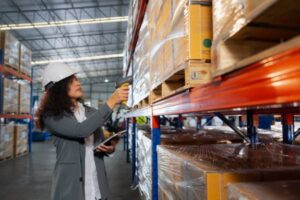Whether you run a warehouse, shipping zone or retail store, accurate inventory tracking is critical to operational success. Incorrect data can lead to erroneous reports, hide employee theft (a $94 billion problem in the U.S. alone), or prevent a healthcare system from reordering lifesaving supplies.
RFID helps businesses track items and reduce errors. Unlike barcode systems, RFID tracks from a distance using radio waves that are picked up by RFID readers and sent to a computer database. For quality RFID tracking, check this out.
Accuracy
Unlike barcode scanners that require a line-of-sight, RFID readers can scan multiple items and assets simultaneously. This makes inventory and checkout faster and minimizes stock outages.
Streamlined Receiving Time
By eliminating manual scanning of each item, RFID can speed up receiving times by 90 per cent or more. It also eliminates errors in data entry and reduces labour costs by a similar margin.
Real-Time Visibility
Unlike manual tracking systems, which can take hours to update, RFID provides instant visibility into your inventory levels. You can find out if a product is in stock, where it is located and how many you have on hand. This information empowers businesses to make decisions about reordering or shipping products to stores. For example, Lowe’s Home Improvement uses RFID to identify where specific products like a wrench or faucet are on the store floor and direct customers to them. This improves customer service and increases sales and brand loyalty.
Efficiency
When an item is scanned with an RFID reader, the data is instantly evaluated and sent to a system. This eliminates the need for manual reading and input, reducing errors that could disrupt an operation. For quality RFID tracking, check this out.
It also reduces the time required to perform tasks. For example, a hospital with an RFID system that helps nurses locate equipment can save valuable time by not having to look for items they need to service patients.
RFID tracking also enhances supply chain efficiency, lowering operating costs and improving profitability. It allows for greater inventory accuracy, leading to higher sales and increased consumer satisfaction.
With real-time inventory visibility, companies can identify trends and align supplies with demand. For instance, a retail brand can use data analytics to determine the best locations in stores to place high-demand products and learn how fast or slow-moving certain types of products are to optimize warehouse layouts for efficiency.
Security
 In retail environments, RFID reduces theft and shrinkage by enabling faster self-checkout. It also boosts inventory accuracy and allows reordering automatically and automatically. This reduces overall costs and allows for increased productivity throughout the supply chain.
In retail environments, RFID reduces theft and shrinkage by enabling faster self-checkout. It also boosts inventory accuracy and allows reordering automatically and automatically. This reduces overall costs and allows for increased productivity throughout the supply chain.
You’ve probably already used RFID tags without realizing it – they’re in passports, metro transport cards and hotel room key cards, just a few examples. The technology uses a tiny circuit and antenna to transmit radio signals at low, medium or high frequencies.
Like any technology, RFID is vulnerable to hackers seeking unauthorized access for gain. Skimming and eavesdropping are two of the ways these attacks can be conducted. RFID systems offer security options like cover coding and challenge-response authentications to combat these risks. This ensures that data exchanged between the reader and tag is encrypted. As a result, anyone intercepting the communication cannot read the information. For quality RFID tracking, check this out.
Customer Service
Customer service is a big deal, arguably more significant than any other aspect of business. Customers who feel their concerns are heard, listened to, and understood will likely stay loyal to your brand, buy more products and services, and recommend you to friends and colleagues.
A great way to give superior customer service is by having clear and accurate records of your inventory and the information contained within each. With an RFID tracking system, you can automate many manual processes and keep precise data on everything from the price you purchased each item to its condition and maintenance history.
KORONA POS seamlessly integrates RFID with our point of sale (POS) solution, which allows businesses to offer self-checkout. This enhances the customer experience by reducing wait times and creating a frictionless checkout process; for instance, in environments where screw solution, hydraulic oil and dirt blur product labelling, HellermannTyton’s RFID cable ties are the perfect solution for easy product identification.

